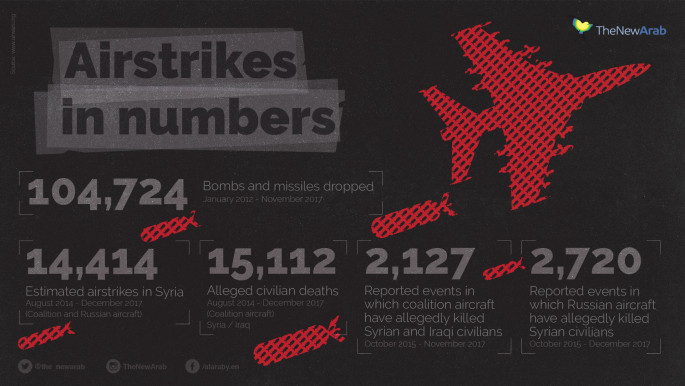Syrian rebel groups reject Russia's Sochi conference
In a statement by nearly 40 rebel groups, including some of the military factions that took part in the earlier rounds of the peace talks, they said that there was no real pressure being placed on the Syrian government by Moscow to reach a political settlement.
"Russia has not contributed one step to easing the suffering of Syrians and has not pressured the regime that it claims it is a guarantor by move in any real path towards a solution," the rebel statement said.
Russia, a dominant player in Syria, has received backing from Turkey and Iran after it held the Syrian national dialogue congress in the Russian city of Sochi in January.
"Russia is an aggressor country that has committed war crimes against Syrians... It stood with the regime militarily and defended its politically and over seven years preventing UN condemnation of (Syrian President Bashar) Assad’s regime," the statement added.
Moscow claims it only targets militants, but human right groups have documented hundreds of civilian casualties in indiscriminate bombing
The statement comes after the eighth round of peace talks and the order by the Russian leader Vladimir Putin for a partial withdrawal of Russian forces during a surprise visit to the war-torn country.
Moscow has spearheaded the talks in Astana since the start of the year as it tries to turn its game-changing military intervention into a negotiated settlement.
The Kremlin also hopes to convene a political congress in the Black Sea resort of Sochi which would bring together regime officials and the opposition to reinvigorate a hobbled peace process.
Staffan de Mistura, the UN Syria envoy, said that Russia’s plan to convene the congress is dependent on its ability to support the UN-led Geneva talks taking place.
Since the start of Syria's war in 2011, numerous diplomatic attempts to halt the conflict have stumbled, mainly over the future of President Bashar al-Assad.
The Syrian conflict began when the Baath regime, in power since 1963 and led by Assad, responded with military force to peaceful protests demanding democratic reforms during the Arab Spring wave of uprisings, triggering an armed rebellion fuelled by mass defections from the Syrian army.
The brutal tactics pursued mainly by the regime, which have included the use of chemical weapons, sieges, mass executions and torture against civilians have led to war crimes investigations.
Rebels still insist on Assad's removal from power as a principal term for any peace deal.




